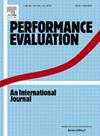Certificates and witnesses for multi-objective queries in Markov decision processes
IF 0.8
4区 计算机科学
Q4 COMPUTER SCIENCE, HARDWARE & ARCHITECTURE
引用次数: 0
Abstract
Probabilistic model checking is a technique for formally verifying the correctness of probabilistic systems w.r.t. given specifications. Typically, a model checking procedure outputs whether a specification is satisfied or not, but does not provide additional insights on the correctness of the result, thereby diminishing the trustworthiness and understandability of the verification process. In this work, we consider certifying verification algorithms that also provide an independently checkable certificate and witness in addition to the verification result. The certificate can be used to easily validate the correctness of the result and the witness provides useful diagnostic information, e.g. for debugging purposes. More specifically, we study certificates and witnesses for specifications in the form of multi-objective queries in Markov decision processes. We first consider multi-objective reachability and invariant queries and then extend our techniques to mean-payoff expectation and mean-payoff percentile queries. Thereby, we generalize previous works on certificates and witnesses for single reachability and invariant constraints. In essence, we derive certifying verification algorithms from known linear programming techniques and show that witnesses, both in the form of schedulers and subsystems, can be obtained from the certificates. As a proof-of-concept, we report on an implementation of our certifying verification algorithms and present experimental results, demonstrating the applicability on moderately-sized case studies.
马尔可夫决策过程中多目标查询的证书和见证
概率模型检查是一种在给定规范下正式验证概率系统正确性的技术。通常,模型检查过程输出规范是否满足,但不提供对结果正确性的额外见解,从而降低了验证过程的可信度和可理解性。在这项工作中,我们考虑认证验证算法,除了验证结果之外,还提供独立可检查的证书和证人。证书可以用来很容易地验证结果的正确性,而见证提供了有用的诊断信息,例如用于调试目的。更具体地说,我们研究了马尔可夫决策过程中多目标查询形式的规范证书和见证。我们首先考虑多目标可达性和不变查询,然后将我们的技术扩展到平均收益期望和平均收益百分位查询。因此,我们推广了以往关于单可达性和不变约束的证书和见证的工作。从本质上讲,我们从已知的线性规划技术中推导出认证验证算法,并表明可以从证书中获得证人,无论是调度程序还是子系统。作为概念验证,我们报告了我们的认证验证算法的实现并提出了实验结果,证明了在中等规模的案例研究中的适用性。
本文章由计算机程序翻译,如有差异,请以英文原文为准。
求助全文
约1分钟内获得全文
求助全文
来源期刊

Performance Evaluation
工程技术-计算机:理论方法
CiteScore
3.10
自引率
0.00%
发文量
20
审稿时长
24 days
期刊介绍:
Performance Evaluation functions as a leading journal in the area of modeling, measurement, and evaluation of performance aspects of computing and communication systems. As such, it aims to present a balanced and complete view of the entire Performance Evaluation profession. Hence, the journal is interested in papers that focus on one or more of the following dimensions:
-Define new performance evaluation tools, including measurement and monitoring tools as well as modeling and analytic techniques
-Provide new insights into the performance of computing and communication systems
-Introduce new application areas where performance evaluation tools can play an important role and creative new uses for performance evaluation tools.
More specifically, common application areas of interest include the performance of:
-Resource allocation and control methods and algorithms (e.g. routing and flow control in networks, bandwidth allocation, processor scheduling, memory management)
-System architecture, design and implementation
-Cognitive radio
-VANETs
-Social networks and media
-Energy efficient ICT
-Energy harvesting
-Data centers
-Data centric networks
-System reliability
-System tuning and capacity planning
-Wireless and sensor networks
-Autonomic and self-organizing systems
-Embedded systems
-Network science
 求助内容:
求助内容: 应助结果提醒方式:
应助结果提醒方式:


